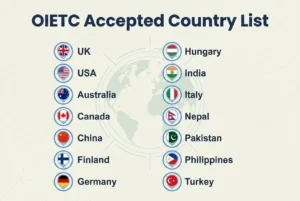Denmark is a top destination for international students due to its high-quality education system, vibrant culture, and beautiful landscapes. However, the cost of studying in Denmark can vary significantly based on multiple factors, including tuition fees, living expenses, accommodation, and personal lifestyle choices. This guidance will help you to get an approximate insight into the cost to study in Denmark, so if you are planning to study abroad in Denmark, this guidance will help you a lot.
Why study in Denmark?
Before jumping into the costs of studying in Denmark, you should know the benefits of studying there. Studying in Denmark offers a host of compelling reasons that make it an attractive choice for international students:
- High-Quality Education System: Denmark boasts a well-established education system known for its high academic standards, innovative teaching methods, and emphasis on practical learning. The country’s universities consistently rank among the world’s best, offering cutting-edge research opportunities and a student-centered approach to education.
- Wide Range of Programs: Danish universities offer a diverse range of programs taught in English, catering to international students. Whether it’s engineering, business, humanities, or sciences, there’s a broad spectrum of disciplines available, providing students with ample choices to pursue their academic interests.
- Focus on Innovation and Research: Denmark is renowned for its commitment to innovation and research. Students can access state-of-the-art facilities, collaborative research projects, and partnerships with industry leaders. This environment fosters creativity and critical thinking, preparing students for global challenges and career opportunities.
- Strong Emphasis on Sustainability and Green Technology: Denmark is a global leader in sustainability initiatives and green technology. Studying in Denmark provides unique insights into sustainable practices and environmental technologies, making it an ideal destination for those passionate about sustainability and renewable energy.
- Engaging Learning Environment: The Danish education system encourages interactive learning, group projects, and open discussions. Students are encouraged to voice their opinions, challenge ideas, and engage in hands-on experiences, fostering a dynamic and inclusive learning atmosphere.
How much is the cost to study in Denmark?
The entire cost to study in Denmark mostly depends on the university tuition and accommodation fees. However, there are also some other costs, like accommodation fees, travel fees, visa application fees, food costs, etc.
Tuition fees in Denmark for international students
Tuition fees are the main cost to study in Denmark. For students from the European Union (EU), the European Economic Area (EEA), or Switzerland, studying in Denmark might be tuition-free at public universities. However, certain programs might have tuition fees, especially at the master’s level or for specific courses. Non-EU/EEA students generally have tuition fees ranging from approximately 6,000 to 16,000 euros per year for full-degree students. These fees can vary based on the institution and program.
Living expenses in Denmark
Living expenses are also a fundamental cost to study in Denmark. Denmark is known for its high standard of living, which consequently affects living expenses. Students should budget for accommodation, food, transportation, books, and personal expenses.
| Type of Costs | Approximate Cost of Living per Month |
| Rent | Varies from 3000-5,000 DKK (utilities are generally included) |
| Insurance | Approximately 200 DKK |
| TV license | 100 DKK |
| Books and supplies | 250-500 DKK |
| Mobile phone | 150 DKK (internet bill around 250 DKK, may be included in your rent) |
| Food | 1,500-2,000 DKK |
| Transport | 300 DKK |
| Other personal expenses | 1,000 DKK |
Visa application fee to study in Denmark for international students
The visa application fee is the main cost to study in Denmark after the tuition fees. The visa fees vary based on the type of visa or residence permit required.
For shorter stays (up to 90 days) that don’t require a full residence permit, students may need to apply for a Schengen visa. The fees for a Schengen visa could range between 35 to 80 euros (or its equivalent in Danish Krone). The standard fee for long-stay visas (Visa D) is €195.
Affordable universities to study in Denmark
Denmark is known for its high-quality education system, and while the cost of living might be higher compared to some countries. If you want to reduce your overall cost to study in Denmark, you have to choose an affordable university. Here are some affordable universities to study in Denmark.
- Roskilde University
- University of Southern Denmark (SDU)
- Aalborg University
- Technical University of Denmark (DTU)
- University Of Copenhagen
- University College Of Northern Denmark etc.
Scholarships to study in Denmark
Scholarships help to reduce or bear the overall cost of studying in Denmark. Many Danish universities and educational institutions offer scholarships tailored to international students. These may include:
- Nordplus Scholarship
- Erasmus Scholarship
- Erasmus Mundus/Joint Master Degree
- Fulbright Denmark
- Danish government scholarships for highly qualified non-EU/EEA students
- The Danish State Educational Support (SU)
Final words
The costs of studying in Denmark involves various factors, and students must plan and budget accordingly. With the right information and preparation, pursuing an education in Denmark can be a rewarding experience. If you want to pursue your higher education in Denmark, you can always contact AIMS Education.





